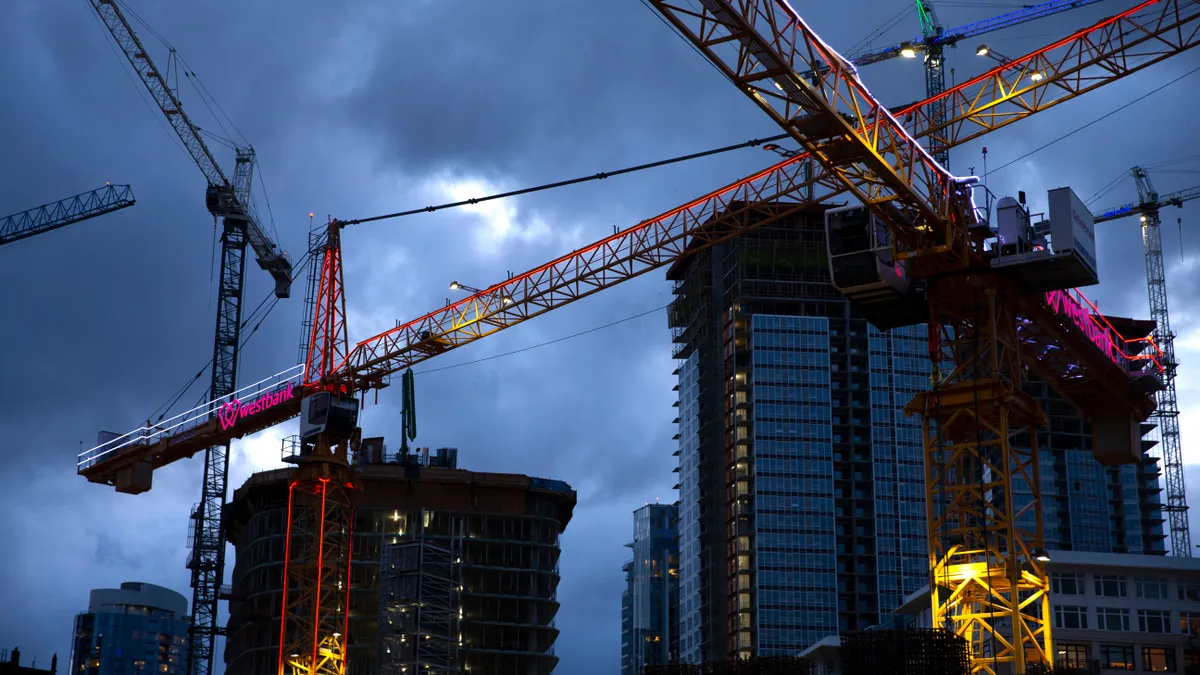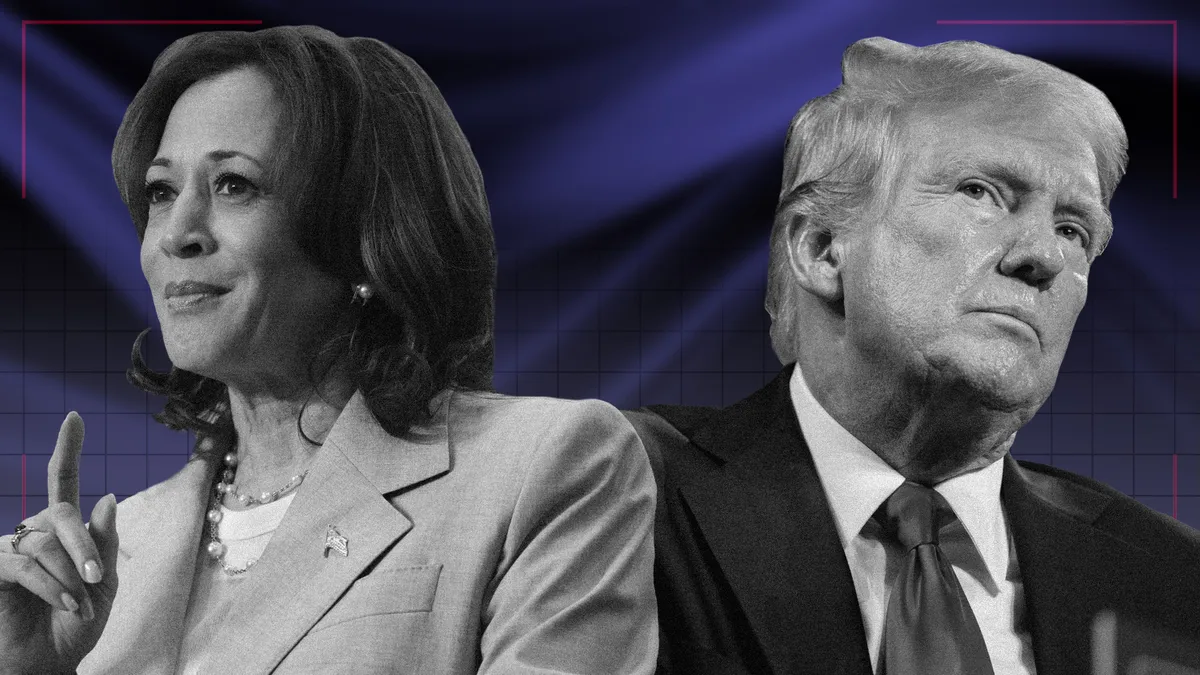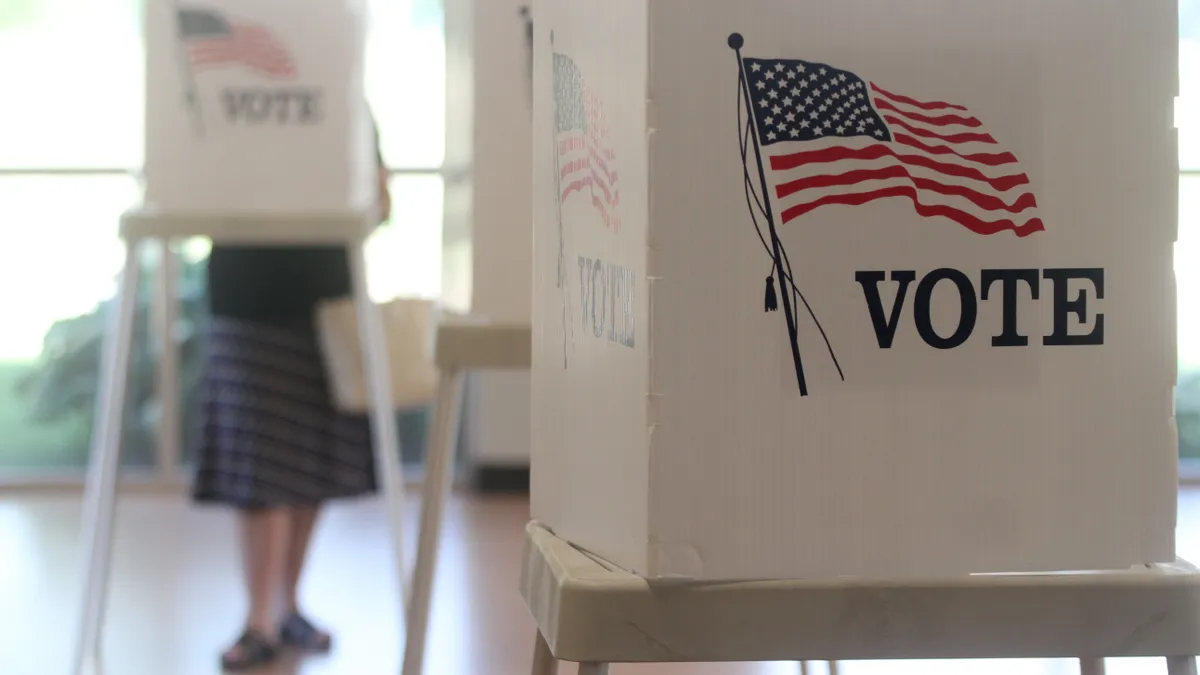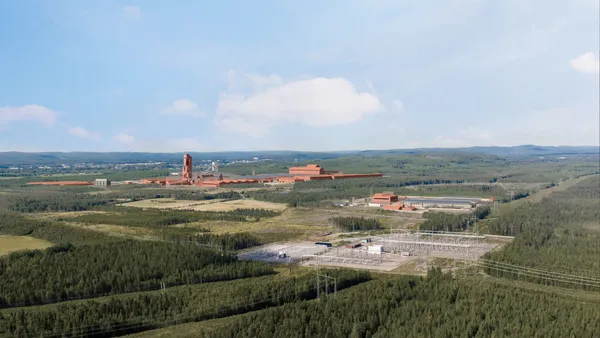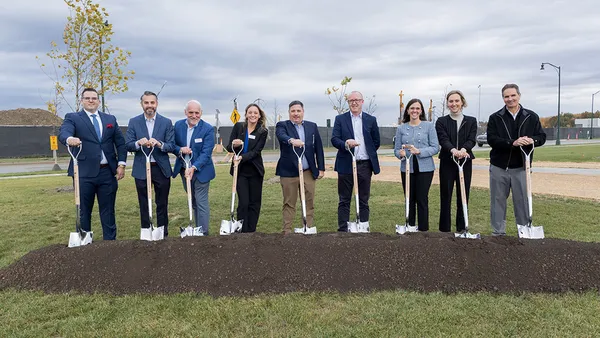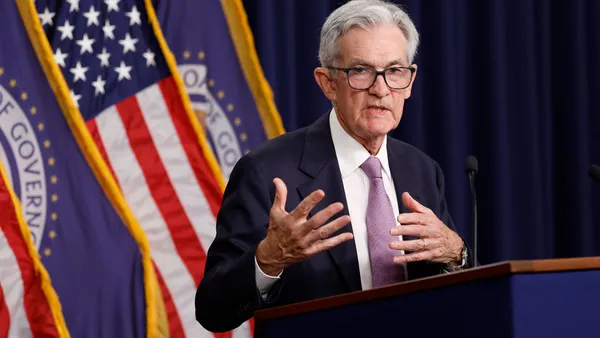This story is part of a series of articles looking at the COVID-19 pandemic's effect on the construction industry and how an expected rebound in construction work later this year could be slowed by a variety of forces. Click here for other articles in the series and check back for more throughout the year.
Dive Brief:
- The future of construction in 2022 looks bright, especially in the institutional sector, but contractors will have to overcome a multitude of challenges to enjoy it, based on two bellwether construction reports issued last week.
- The Dodge Momentum Index, which rose 8.6% in April, is now at a 12-year high, led by a 77% climb in the institutional category over the last three months. But that positive, which gauges the initial planning of projects and usually precedes actual construction spending by 12 months, was countered by current challenges of soaring material costs and obstinate workforce shortages in the larger construction industry, according to the Associated General Contractors of America.
- "Contractors are experiencing unprecedented intensity and range of cost increases, supply chain disruptions, and worker shortages that have kept firms from increasing their workforces," said Ken Simonson, AGC's chief economist, in a statement. "These challenges will make it difficult for contractors to rebound as the pandemic appears to wane."
Dive Insight:
The uptick in the institutional sector, which includes healthcare, education, dormitories, recreation facilities and public buildings such as courts and prisons, seems to be driven by longer-term optimism about the country's overall progress against COVID-19, even as the hurdles that threaten to hinder construction's emerging recovery remain in the near term.
"The institutional component of the Dodge Momentum Index had posted a long string of declines in the immediate wake of the pandemic as state and local governments grew concerned with the potential for widening budget gaps," said Richard Branch, Dodge’s chief economist, in an email. "However, since hitting a low in January 2021, institutional planning has risen to levels not seen in over 10 years driven by healthcare, labs, and education projects."
The flood of cash from the $1.9 trillion American Rescue Plan probably didn't hurt, Branch said.
"While the exact reason for the uptick is unclear, these projects have likely been under consideration for some time but have not moved forward into the formal planning process," he said. "The recent influx of fiscal stimulus from the American Rescue Plan in March, combined with a more optimistic outlook for COVID-19 infections has likely provided more clarity and moved these projects forward in the planning timeline."
The leading institutional projects were the $300 million first phase of The Cove JC laboratory and education facility in Jersey City, New Jersey, and a $175 million laboratory project in Boston, according to Dodge.
Current challenges
But while the outlook for construction spending a year from now looks rosy, contractors still have to make it past today's issues. For example, the disappointing jobs report for April, which showed just 266,000 new positions in the broader economy versus an anticipated 1 million, played out in construction as well, where hiring had been surging but fell flat last month.
That, combined with skyrocketing prices for key construction materials such as lumber, steel, cement and diesel fuel, has made the already complex operation of building out multi-million dollar projects that much more difficult.
"The fact that employment has stalled — despite strong demand for new homes, remodeling of all types and selected categories of nonresidential projects — suggests that contractors can’t get either the materials or the workers they need," Simonson said.
AGC pointed the finger at enhanced unemployment benefits keeping workers away from jobsites.
"Ironically, the latest coronavirus relief bill may actually be holding back economic growth by keeping people away from work at a time when demand is rebounding," said Stephen Sandherr, AGC's CEO, in the statement.
Following Montana Gov. Greg Gianforte's announcement last week that the state would end enhanced COVID-19 pandemic unemployment benefits and replace them them with a $1,200 bonus for unemployed workers who return to work, President Joe Biden on Monday pledged to stop people from gaming the system at the federal level, too.
"We’re going to make it clear to anyone collecting unemployment who is offered a suitable job they must take the job or lose their unemployment benefits," Biden said during prepared remarks from the White House.



